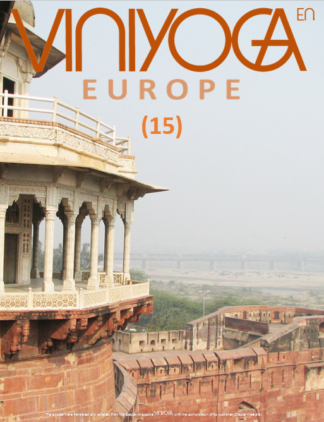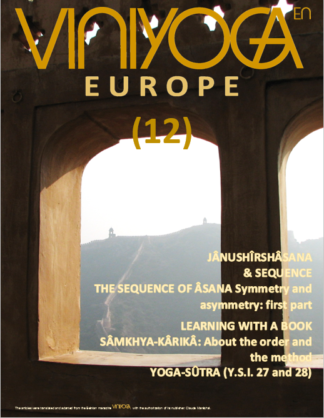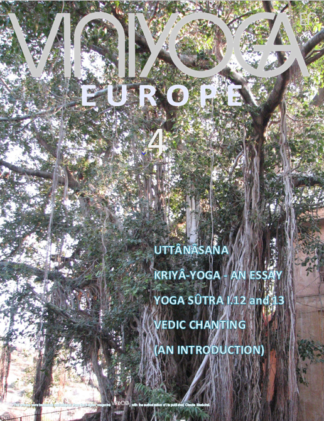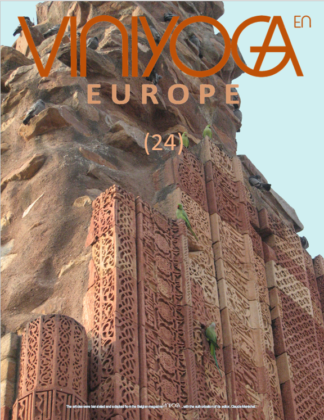Description
(44 pages)
EIGHT POINTS THAT ARE SPECIFIC TO EACH PRACTITIONER
By T.K.V. Desikachar
KUMBHAKA, BREATH SUSPENSIONS
The regular practice of breathing exercises is one of the methods that is suggested by Patanjali to clarify one’s mind. Breath suspensions are one of the essential components of the practice of âsana and prânâyâma.
(This article contains 3 practices)
By Frans Moors
DON’T LET OLD HABITS UPSET YOU
Yoga practice includes constant self-observation. Something good today may not be that good tomorrow.
By T.K.V. Desikachar
VEDIC MEDITATION
“Vedic meditation” includes different forms of meditation. The ancient Indian tradition is in part a result of classical yoga teachings and it continues to be very popular in India; it was first passed on to us by Shrî T. Krishnamacharya, and then by his son and disciple, TKV Desikachar.
Vedic meditation does not exclude any means; it can use postural exercises (âsana), breathing exercises (prânâyâma), chants or specific recitations (mantra), visualizations, symbols, ritual positions, etc.
Meditation allows us to find solutions and answers, which were inaccessible to us through our usual mental processes. This happens because meditation puts us in a very favorable state of mental (citta) availability and clarity.
(This article contains 2 practices)
By T.K.V. Desikachar; presentation: Frans Moors
YOGA-SÛTRA (I.42)
When one’s mind reaches a level of samâdhi, it is able to focus on an object or meditate, without distractions or interruptions. However, the experience is not perfect yet, because the mind is still susceptible to some distortions…
Comments by Shrî T. Krishnamacharya; presentation and explanations: T.K.V. Desikachar





